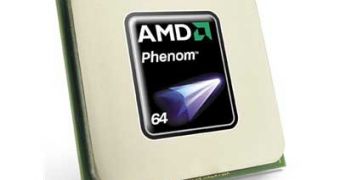The 64-bit CPU technology came tumbling down and dragged with it more than a new generation of operating systems with its additional programs and stuff. The new CPU architecture left the users pondering whether it's worth investing significant amounts of money for upgrading from 32- to 64-bit operating systems.
64-bit CPUs are hardly any news for those who have the faintest contact with computers. They have a strong presence on the market, however, most of the users are still using 32-bit processors and the compatible operating systems.
The advantages of switching to the 64-bit processors were detailed in a plethora of articles, but they were all oriented on Microsoft's 64-bit versions of Windows. Let's not forget that Windows implemented the 64-bit architecture a lot later than Linux did, alas nobody would really bother to publish some 32- vs. 64-bit Linux-based benchmarks.
AMD released the crippled Phenom 9500 last year, and was the first AMD desktop quad-core to have reached the market. The chip seemed not to like the Ubuntu 7.10 distribution, yet, the latest builds of Ubuntu 8.04 "Hardy Heron" (although in Alpha stage), with the Linux 2.6.24 kernel, made it extremely obedient.
The benchmarking procedure involves the use of an AMD Phenom running at a stock core speed on a Gigabyte MA790FX-DS5 motherboard, 2GB of OCZ Reaper HPC PC2-8500, Corsair TX750W power supply, Seagate SATA 300GB HDD, and the Radeon HD 3850 graphics, as well as both 32- and 64-bit editions of Ubuntu "Hardy Heron". The burn-in test is comprised of running Doom 3, Quake 4, Enemy Territory: Quake Wars, LAME encoding, and Gzip compression.
It may seem odd, but the Ubuntu x86_64 was slightly slower than the 32-bit version while running most of the above-mentioned applications. However, the true power of 64-bit applications can be seen during the LAME encoding, as well as during the Gzip compression tests.
The test might not be of any relevance, since people don't quite often use their systems for either LAME compression or GZIP archival, but if you have to choose, bear in mind that the 64-bit technology is constantly evolving, while the 32-bit one is slowly phasing out.

 14 DAY TRIAL //
14 DAY TRIAL //